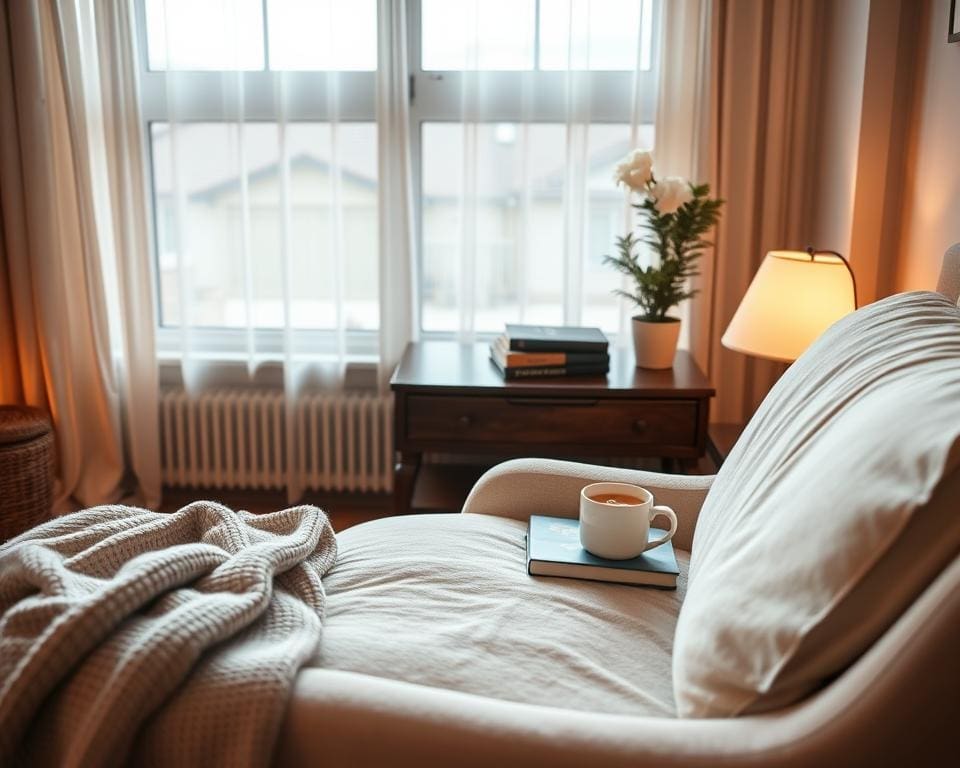Each day presents us with unique challenges, prompting us to ask ourselves: What does your body need to feel safe today? The concept of body safety extends beyond mere physical security; it encompasses an intricate balance of emotional and mental wellbeing. Understanding what contributes to feeling secure is essential for maintaining a harmonious existence. By recognising the needs of our bodies and minds, we can take vital steps towards fostering an environment where we feel protected and supported.
Understanding Body Safety
Body safety represents a fundamental concept pertaining to our sense of security and protection within our environments. It encompasses the idea that individuals deserve to exist free from harm, fostering a profound sense of safety. This state significantly influences emotional wellbeing, as when one feels secure, they thrive mentally and emotionally.
Definition of Body Safety
Body safety refers to the condition in which a person feels protected from potential threats or harm. It involves both physical safety and the assurance that one’s personal space is respected. This concept is intrinsic to our overall health and plays a pivotal role in nurturing a positive mental landscape. A deep understanding of body safety can empower individuals to recognise their rights to personal security and comfort.
The Importance of Feeling Secure
Feeling secure is essential for maintaining emotional wellbeing. Research indicates that a robust sense of security correlates strongly with improved mental health outcomes. Individuals who experience a consistent feeling of safety can navigate life’s stressors with greater resilience. When people acknowledge their body safety, they tend to build stronger interpersonal connections and engage more openly with the world around them.

What Does Your Body Need to Feel Safe Today?
Understanding the role of emotional wellbeing is vital for feeling secure in any environment. Our emotions shape how we respond to the world around us. When we prioritise our emotional health, we lay a foundation for body safety, allowing us to navigate both challenges and opportunities with ease. Being self-aware can help us identify our needs and recognise the importance of addressing negative feelings constructively.
Emotional Wellbeing: A Key Component
Emotional wellbeing encompasses self-acceptance and self-compassion. Cultivating these qualities invites a deeper understanding of oneself, fostering resilience in the face of adversity. Recognising when negative emotions arise enables individuals to implement positive coping strategies, ultimately aiding in the promotion of body safety.
- Engage in self-reflection to identify your emotional state.
- Practice self-compassion through affirmations and kindness towards yourself.
- Utilise coping mechanisms such as journaling or talking with a trusted friend.
By nurturing emotional wellbeing, one cultivates a robust sense of self that supports overall mental health and enhances body safety. Seeking support from others and developing emotional intelligence can lead to a more secure and fulfilling life.
Exploring Physical Comfort
Physical comfort plays a crucial role in how secure individuals feel within their environment. Achieving this sense of comfort involves multiple factors, particularly the creation of a safe space and optimal clothing choices. Simple adjustments can significantly enhance one’s comfort levels, leading to a greater sense of wellbeing.
Creating a Safe Environment
Creating a safe environment is essential for promoting physical comfort. A well-organised and clean space can have a profound impact on how secure one feels. Consider implementing the following strategies:
- Declutter your surroundings: Reducing unnecessary items can lead to a more peaceful atmosphere.
- Ensure good lighting: Natural light can elevate moods while artificial lighting should be warm and inviting.
- Incorporate personal touches: Adding elements that resonate personally can foster a sense of belonging and safety.
Importance of Comfortable Clothing and Surroundings
Comfortable clothing significantly influences one’s overall sense of physical comfort. The right attire can uplift mood and promote a positive self-image. Clothing made from soft, breathable fabrics can enhance feelings of ease and security. Opting for garments that allow for movement without restriction also contributes to a relaxed state. When both surroundings and clothing provide comfort, individuals can navigate their day with confidence and a heightened sense of safety.
Self-Care Practices for Enhanced Security
Incorporating self-care practices into your daily life can significantly enhance your sense of security and emotional wellbeing. Engaging in consistent daily rituals not only promotes relaxation but also fosters a deeper connection to oneself. These practices, ranging from quiet reflection to physical activities, help cultivate a nurturing environment for inner peace.
Daily Rituals to Promote Relaxation
Establishing daily rituals is essential for creating a calming routine. Activities such as meditation, journaling, or enjoying a hobby can provide moments of tranquillity in a fast-paced world. Consider the following practices to encourage relaxation:
- Meditation: Spend a few minutes each day focusing on your breath, allowing thoughts to pass without judgement.
- Journaling: Writing down your thoughts can clarify feelings and foster emotional wellbeing.
- Reading: Immerse yourself in a good book, allowing the narrative to transport you from daily stresses.
Integrating Mindfulness into Your Routine
Mindfulness techniques serve as powerful tools for enhancing emotional wellbeing. These practices encourage you to be present, reducing anxiety and fostering a feeling of safety. Begin by integrating simple mindfulness strategies into your daily routines:
- Mindful Eating: Pay attention to the taste and texture of your meals, making dining a sensory experience.
- Walking Meditations: Take a slow walk, focusing on each step and the sensations in your body.
- Breathe Mindfully: Periodically take deep breaths, grounding yourself in the moment.
Mental Health Support and Its Role
Mental health support plays a crucial role in fostering a sense of safety and wellbeing. Maintaining mental health is as important as addressing physical safety; sometimes, individuals may find themselves overwhelmed by life’s challenges. Seeking professional help becomes essential when such feelings arise. Accessing services such as therapy or counselling can empower individuals to navigate their mental health journey with guidance and expertise.
Seeking Professional Help When Needed
Engaging with mental health professionals serves as a proactive step towards emotional resilience. Therapy offers a safe space for individuals to express their thoughts and feelings. Many therapists employ various techniques tailored to each person’s needs. This structured approach can result in significant breakthroughs in understanding personal challenges. Recognising the importance of seeking professional help can make all the difference in overcoming obstacles effectively.
Utilising Support Networks
The power of social connections cannot be overlooked. Support networks composed of friends, family, and community groups act as vital buffers against anxiety. These relationships foster a sense of belonging, making it easier for individuals to share their experiences and challenges. Engaging openly with loved ones can provide much-needed validation and encouragement during tough times. Establishing a robust support network enhances one’s ability to cope with life’s stresses more resiliently.
Relaxation Techniques for Everyday Life
Incorporating relaxation techniques into daily routines can significantly enhance one’s sense of security and well-being. These practices allow individuals to manage stress effectively, leading to a more balanced life.
Breathing Exercises for Immediate Relief
One of the most effective breathing exercises is diaphragmatic breathing. This technique involves inhaling deeply through the nose, allowing the abdomen to expand, followed by a slow exhalation through the mouth. Engaging in this process for several minutes can provide quick relief from anxiety and stress. Regular practice can further strengthen this ability and promote a grounded presence in overwhelming situations.
Grounding Techniques to Reduce Anxiety
Grounding techniques, such as the 5-4-3-2-1 method, help reconnect individuals with their physical surroundings. This method encourages individuals to identify five things they can see, four they can touch, three they can hear, two they can smell, and one they can taste. Engaging in this exercise shifts focus away from anxious thoughts and restores a sense of calmness. By incorporating these relaxation techniques into daily life, people can cultivate resilience against stressors and nurture their overall emotional health.
Stress Relief Strategies to Feel Secure
In today’s fast-paced world, employing effective stress relief strategies is vital for enhancing body safety and ensuring we feel secure in our daily lives. One foundational aspect is time management; by structuring our day effectively, we can mitigate feelings of overwhelm and create a sense of control. Allocating specific time slots for work, relaxation, and personal activities fosters a balanced routine that nurtures mental wellbeing.
Engaging in physical activity is another key component. Whether it’s a brisk walk in a local park, a session of yoga, or dancing to your favourite music, moving your body releases endorphins that combat stress and elevate mood. This not only contributes to overall health but plays a significant role in cultivating an environment where one feels secure and at ease.
Lastly, addressing financial and relational stressors is crucial for fostering a sense of security. Consider creating a budget to manage financial concerns effectively or having open dialogues with loved ones about any relational issues. By actively confronting these stressors, and implementing these stress relief strategies, you pave the way for a more peaceful existence where feeling secure becomes a natural state.









